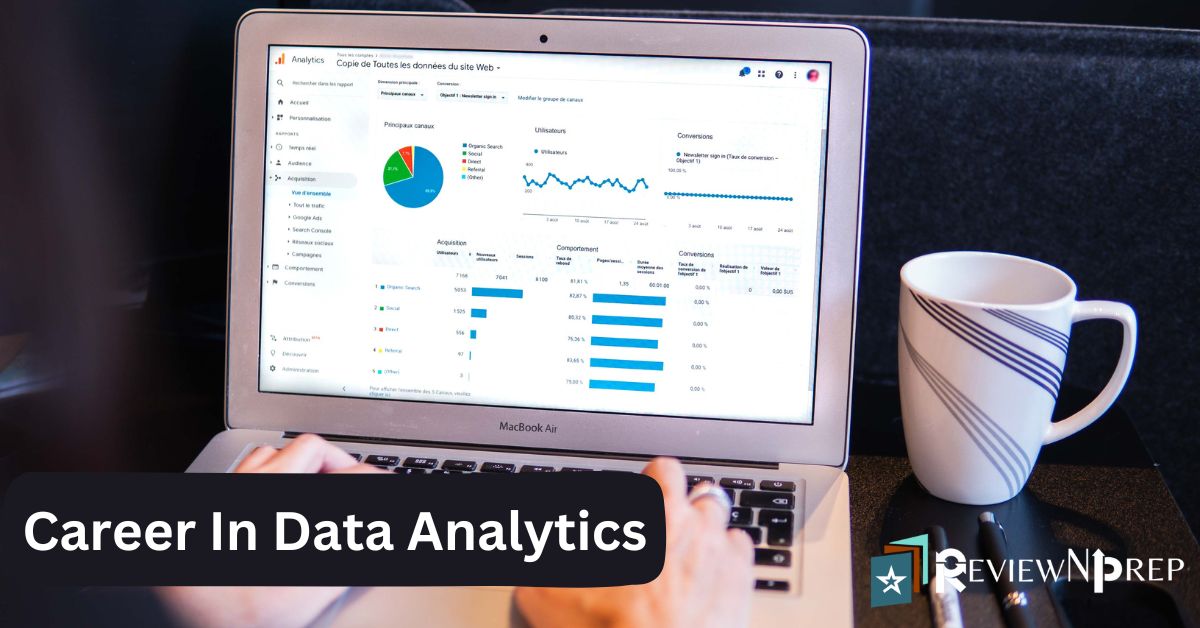|
|
Data analytics has become a highly sought field of study and career option for many, especially with technology advancing and data becoming a more crucial part of various industries. A report from Acumen Research and Consulting on the data analytics market projected that it will reach a value of $329.8 billion by 2030. Universities are also accounting for this high demand, offering programs on data analytics to give students the knowledge and skills needed for a career in this field.
Enrolling in a master’s program can elevate your know-how in data analytics, which can be helpful when entering the working world. However, you must consider some things before choosing where to study.
Here are four steps that can help you choose the right data analytics master’s program for you:
1. Establish your career goals
When looking for the right data analytics master’s program, it pays to have a set of goals you want for your future work to ensure the programs you’re eyeing fit you. Insights from Business News Daily highlight the importance of knowing your career goals to determine the necessary step to achieve them, which may include getting a master’s degree in data analytics.
If you’re looking to advance in the field and become an expert, a program focusing on relevant subjects such as predictive analytics and machine learning can equip you with an in-demand skillset that employers can pick up on.
If you want to enhance your data analytics know-how to use in a different or adjacent field to data analytics, going for a more straightforward program can be sufficient in bolstering your resume. Knowing your goals for your career can help you figure out essential topics you want to study and find which programs offer these courses or subjects.
2. Look at existing student resources
When looking at potential programs, your expectations of what is included in the curriculum may differ from what is covered. The curriculum or subjects listed may be outdated or have undergone recent changes, so you may be unprepared for these alterations. As such, it helps to refer to student resources like course notes and lectures to get a good idea of what the program covers.
Note-sharing platform Studocu receives 20,000 new study notes daily from one of the world’s most active student communities. They come from 21,000 institutions from over a hundred countries. Course notes from students in the same program in your prospective universities can help you see what they’re learning from their perspective. It can give you the first-hand information you need to help you choose the right data analytics master’s program based on a more recent curriculum or subject matter.
3. Figure out where and how you want to study
New opportunities and modes of learning have opened up in the past few years. USNews notes that online learning is set to offer more choices and options for those who may find this learning model more convenient. Universities are also opening up online master’s programs in data analytics, so students who’d prefer learning from home can do so and still receive a high-quality education.
Of course, there’s still the popular option of studying on campus or going for a hybrid of online and offline learning. Considering your geographic location, schedule, finances, and equipment can help you figure out your preferred learning method. It helps to determine which universities offer online, on-campus, or blended learning options. This helps narrow your choices and lets you pick the most convenient and effective data analytics program.
4. Evaluate your skillset
Data analysis asks for specific skills from analysts to carry out their roles and tasks. Our post “How To Start A Data Analytics Career in 2023” notes that analytics, technical, and communication skills are vital in the data analytics field. As such, a master’s program in data analytics can help you build up the skillset you may have already obtained as an undergraduate.
If there are certain areas you may feel are lacking, evaluating your current know-how and which areas you’d like to brush up on can help you determine the master’s program that’s right for you. Perhaps you’re not as well-versed in programming languages as you’d like, so finding a program that offers a subject on this topic can increase your knowledge. Looking at your capabilities from an objective standpoint can give you insight into what you need to work on and which data analytics master’s program can fill in your skills gap.
Conclusion
The advent of big data has transformed our understanding of business, transforming how companies operate and discovering new strategies to meet their needs. We need data professionals more than ever.
As you embark on this journey, remember that there are no set standards or expectations for your degree choice. You can create your own path so long as it leads to success!
For more help with hyperscaling your career, check us out at Review N Prep for courses on data analytics.

